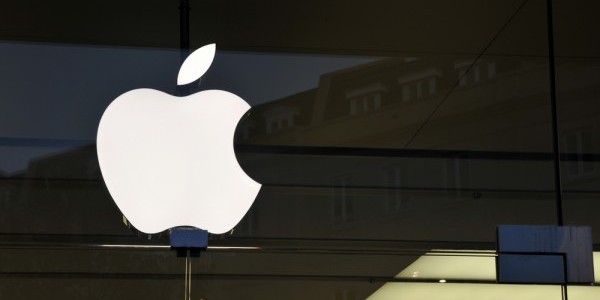Apple, the enterprise, and the marginalization of the cultists

For a company left for dead a little over a decade ago, Apple's return to relevancy and in some cases supremacy is stunning. Love or hate the company, few others have accomplished a similar feat. Now one of the last dominoes left to fall -- the enterprise sector -- is set to embrace the platform.
Forrester Research finds that one out of every five IT employees use one or more Apple products at work. This is not completely by their own request: half of all corporations of 1,000 employees or more now issue Macs to at least some of their work force, with an average of a 52 percent increase in deployments slated for 2012.
The more money you make, the more likely you are to use an Apple device for work, following a similar pattern among consumers. Forty-one percent of those making over $150,000 are using Apple products, while 19 percent of those making under $50,000 do so. You are also more likely as an executive to have an Apple device, at 41 percent for those with a position of Director or higher: this drops off to 14 percent for the average employee.
Understanding Apple's Success in IT
At first glance the numbers are not impressive, but looking at these numbers alone without taking into account the past tells half the story. I'm sure if this same survey was done five years ago these adoption numbers would have been in the single digits, and in the lowest income brackets all but negligible. Apple's real success has come in short order.
Here's another important point from the Forrester survey, which echoes a point I've stressed before: Apple's strength among youth is key. The firm finds that younger IT workers are twice as likely to use Macs as their older counterparts, only furthering the argument that the younger generation is driving -- and will drive -- Apple's success for much of the foreseeable future.
Apple seems to be taking the enterprise market seriously. There is a significant number of job listings for sales and marketing positions outside of the consumer sector. Whether this is a function of the change in leadership to Tim Cook -- Steve Jobs disliked having to "cater" to the specific needs of businesses -- or just forced realization that the enterprise really does matter is unknown.
The reason doesn't really matter as it just means more Macs out the door for the Cupertino, Calif. company. This newfound success in any case will only further marginalize the "Mac cultists" that are too-often mentioned when criticizing the company or its products.
Why the Apple Cult No Longer Matters
My colleague Harry McCracken touched on this topic in his column for Time earlier this week. Already with the success in the consumer space, Apple is moving beyond this vocal and obtuse group. Add a healthy dose of enterprise into the mix. Now how important is this group, really?
The argument against the company using the "Apple cult" excuse is less convincing as Apple continues to grow. Every company has a group of core fanatic users or "fanboys". In the Microsoft world, they're called MVPs. In many cases they're just as bad, and just as blind. It just so happens Apple fanboys are more organized.
Oh, and the argument that these Apple cultists have taken over the tech media, generating overly positive coverage? There's a few prominent MVPs/journalists (many you already read) doing the same thing for Microsoft. This argument reminds me of my diatribe on bias in the tech media from last September. The whole tech media is pretty much a mess, but I do digress here.
Either way, the point is that Apple's customer base is becoming so large that these folks really do not matter anymore. Forrester's findings -- as well as other studies and market share numbers -- indicate that Apple is moving into the mainstream. For a company that just had a $46 billion quarter, the implications of this jump to enterprise are huge.
Apple's revenues and profits are only set to grow even more with this untapped market. This in turn will create a positive feedback loop: those that get used to using Apple in the workplace will be more apt to purchase an Apple product for personal use. The benefits here for the Cupertino, Calif. company are just too great to pass up.
I argued (to a good deal of criticism) that Cook needs something to hang his hat on earlier this month. Call me crazy, but making a solid commitment to the enterprise sector is it. The benefits will be long-lasting.
Photo Credit: 1000 Words / Shutterstock
